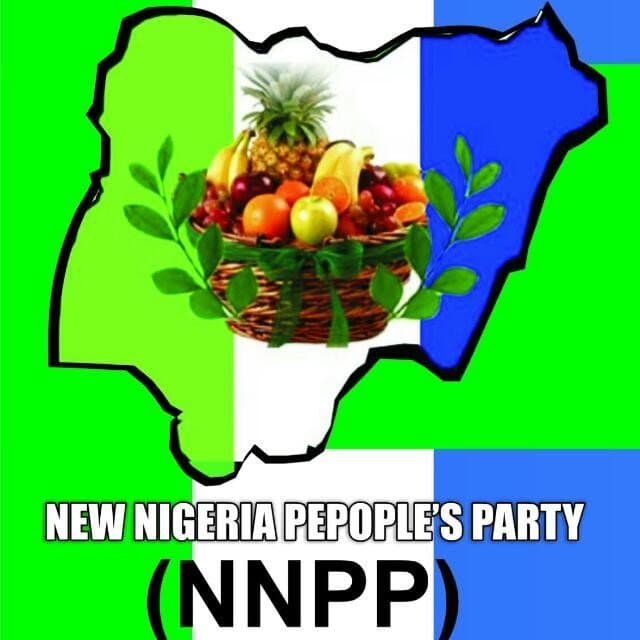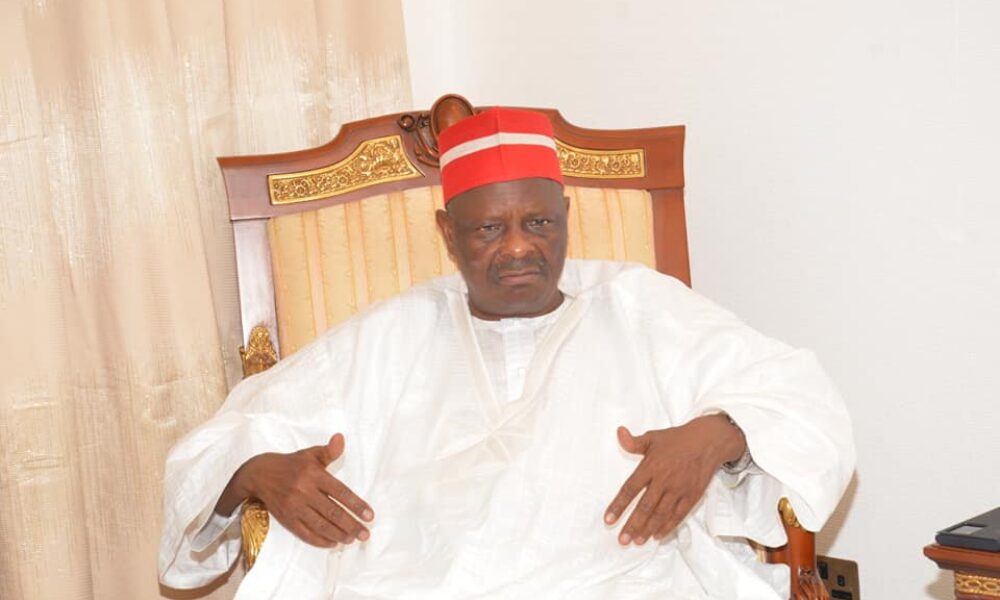Mr Kwankwaso said his latest change of parties was due to “leadership crises in the PDP in Kano State and the North-west chapters.”
His defection from the Peoples Democratic Party (PDP) ended months of speculation. Since he returned to the party in 2018, he had been entangled in a “supremacy battle” with other leaders of the party in his home Kano State and in the North-west. His foes included a former minister of foreign affairs, Aminu Wali, and a former Managing Director of the Nigeria Port Authority, Aminu Dabo, against whom he fought for the control of the party in Kano. He also challenged Governor Aminu Tambuwal of Sokoto State for the North-west leadership of the party.
On Tuesday, Mr Kwankwaso picked the nomination form of the NNPP for the presidential election. Nobody is expected to challenge him for the ticket, the reason many believe he chose the party. The former governor had lost two presidential primaries, to President Muhammadu Buhari in the All Progressives Congress (APC) in 2015, and four years later to former Vice President Atiku Abubakar in the PDP.

He had been uncomfortable when BBC Hausa in early March asked him whether he joined the NNPP to run on its ticket in the 2023 presidential election.
“I have just joined this party and you’re already asking whether I am going to be its presidential candidate. Let’s wait for the excos to settle and we will strategise on the way forward for this party,” he said in the BBC interview monitored by PREMIUM TIMES.
While some see Mr Kwankwaso as a political heavyweight searching for a platform to pursue a national political mission, others see his itinerary across parties in the last eight years as an ego trip. Immediately after obtaining the membership card of the NNPP, he was declared the national leader of the party, a position that offers him total control of the party. He had not been accorded the same privilege in the PDP and in the APC. In the latter, his main foe was his successor and former ally, Governor Abdullahi Ganduje.
The Third Force
Earlier last year, Mr Kwankwaso and some politicians had started the National Movement, which calls itself the Third Force. The group said it is on a mission to save the country from the PDP and APC, the two parties that have run the country in turn since the beginning of the Fourth Republic in Nigeria.
“We are all aware that the people are tired of the APC and PDP and that was why previous elections recorded low voter turnout.
“We thank God that we have fresh air for a better new Nigeria. People are tired and want change and the NNPP is the fresh air that can do it,” Mr Kwankwaso also said.
The NNPP is considered the political wing of the National Movement. Prominent members of the movement who have registered with the NNPP include a former minister of youth and sports, Solomon Dalung, and President Buhari’s estranged right-hand man, Buba Galadima.
NNPP making waves in the North
After receiving the high profile joiners, the NNPP held its national convention in Abuja and elected new leaders. Rufai Alkali, a professor of Political Science and former National Publicity Secretary of the PDP was elected the new national chairman. Mr Alkali is from Gombe State.
The party also said it had conducted its congresses at local and state levels across the North-west and states like Gombe and Nasarawa.
Kano is the heartbeat of the party. There, the PDP governorship candidate for the 2019 election in the state, Abba Yusuf (Abba Gida Gida), had led many other stalwarts of the party to the NNPP before Mr Kwankwaso’s defection. Those who made the journey with him include a former commissioner, Aminu Abdulsalam, and former House of Representatives members, Aliyu Gini, Ibrahim Bullet and Sanusi Bature.
A former chief of staff to Jigawa State governor and governorship aspirant in PDP, Aminu Ringim, and former media aide to Governor Badaru Abubakar, Bello Zaki, joined the party in Jigawa. Suleiman Hunkuyi, a former senator, and Ben Kure, a former political adviser to Governor Nasir El Rufai, led the defectors in Kaduna.
In Katsina, a senior special assistant to Governor Aminu Masari on political affairs, Sani Yankwani, resigned his appointment and joined the party while a former publicity secretary of the PDP, Dauda Kurfi, and Sani Kankia also joined the party. Though he has not officially decamped, a former Executive Secretary of the Petroleum Development Trust Fund, Muttaqa Rabe, was rumoured to have directed his political allies to decamp to the party. He, however, officially remains in the PDP. Another gubernatorial aspirant, Aliyu Jibia, a senior university lecturer, has also moved to the NNPP in Katsina.
The party’s chairman in Katsina State, Gambo Salisu, said: “We have offices in the 34 local government areas of the state and we just elected our excos. Our structure is well formed and we are ready to give APC and PDP a run for their money.”
In Zamfara, most of those who have joined the party were members of the Kwankwasiya Movement. A senior special assistant to Governor Matawalle on public-private partnership, Nuhu Khalil, is leading the exodus from APC and PDP to NNPP in the state. He has since resigned from his appointment. Samaila Baiwa is also another bigwig who has joined the party in the state.
Can NNPP be the new APC?
However, many political analysts doubt that the party has enough to pull a surprise in the 2023 general elections.
“Of course, the fact that the party can be so popular in just three weeks tells you that Kwankwaso is a popular giant but that’s all. With the people that have joined the party so far, I will not be surprised if they win House of Assembly seats and House of Representatives seats in Kano, Kaduna and even Katsina. But I don’t see them winning a governorship or the presidential seat,” a political pundit in Katsina, Saifullahi Kuraye, said.
He said the party may win a few seats in Kano due to the “Kwankwaso” factor.
“NNPP is still not popular in Kwara and Niger states, even in the northern part of the country and the South West. We all know what happened to Buhari before he finally won the presidency.
“Kwankwaso needs Yoruba votes to be the president of this country and unless they can do magic to reach out to the Yoruba in the next few months, I don’t see them winning the presidency or even a governorship seat,” Mr Kuraye said.
It’s too late
A university don and Kano-based political analyst, Muhsin Ibrahim, believes the NNPP can have a good showing in Kano.
“I hope he (yes, he) fields good candidates for the 2023 elections in Kano. But, unfortunately, he cannot win the presidential election under the NNPP. Honestly, only APC and PDP have that clout. Many of us can recall Buhari’s defunct CPC,” he said.
The Head of Department, Political Science at the Umaru Musa Yar’Adua University in Katsina, Kabir Yandaki, also said PDP and APC remain the parties to beat, especially at the national level.
“Yes, people are tired of them (PDP and APC) but the NNPP needs a vibrant structure in the 36 states and financial muscles for the campaign.
“Ideology is missing in the political parties. The absence of ideology can make a new political party have an impact in the current setting because what we have now are ideologically deficient. ”
Mr Yandaki also thinks the NNPP will win some legislative seats due to the “calibre” of the people in the party.
The man Kwankwaso
Mr Kwankwaso is not known to be afraid of taking ‘wild’ political decisions. From the PDP, he switched to the APC in 2014 and returned to the PDP four years later. The fact that he left the parties while each was in government says a lot about his readiness to take bold decisions even at the risk of losing it all.
Political pundits spoken to by PREMIUM TIMES said Mr Kwankwaso is a better politician than many of his peers despite his hopping from one political party to another.
“The real problem is with the political parties in Nigeria. None of them has a clearly defined ideology or can influence their members’ decisions as in the West or other established democracies. In other words, political parties don’t have supremacy over their elected members in Nigeria,” Mr Ibrahim said.
Born 65 years ago, Mr Kwankwaso first came to the national political stage in 1992 when he was elected into the House of Representatives under the Social Democratic Party (SDP) of the short-lived Third Republic and was elected the deputy speaker of the House. He was 36 years old then. After the House was dissolved by the military regime of Sani Abacha, he was elected as a member of the Constitutional Conference in 1994.
In 1999, he was elected the governor of Kano State under the PDP. After losing reelection in 2003, then President Olusegun Obasanjo appointed him as Minister of Defence. The appointment allowed him to retain his status as the leader of the PDP in Kano and made his renomination as the party’s governorship candidate much easier for the 2007 election, which he won. After his second term, Mr Kwankwaso was, in 2015, elected into the Senate from Kano central district. He did not seek reelection to the Senate in 2019.
In the build up to the 2015 elections, Mr Kwankwaso was among the governors that rebelled against President Good luck Jonathan and formed the new-PDP before most of them joined the newly formed APC.
Despite the efforts of President Buhari to dissuade him, Mr Kwankwaso left APC for the PDP in 2018 due to differences between him and Governor Ganduje. He ran unsuccessfully for the presidential ticket of the PDP, losing to Atiku Abubakar in the primaries.
If he runs on the NNPP ticket, he may be among a few candidates from the North in that election, given the clamour for power shift to the South after eight years of the Buhari presidency.
